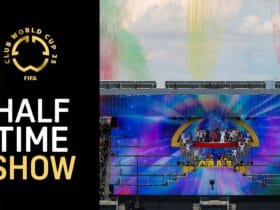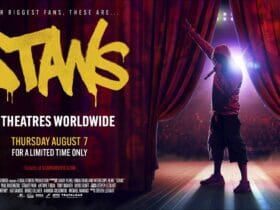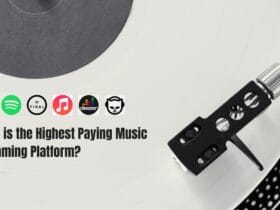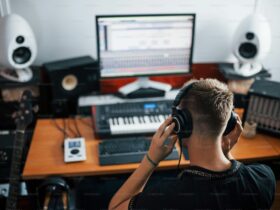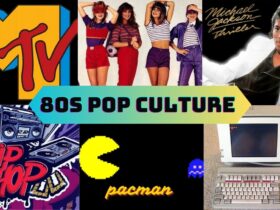Social Networking learning platforms for piano have emerged as dynamic and innovative spaces, bridging the gap between traditional learning and the digital age. These platforms, often in the form of sophisticated apps, are revolutionizing the way musicians connect, learn, and grow together.
The Power of Community in Piano Learning
In the realm of piano education, the emergence of online platforms and apps has introduced a powerful new dimension to the learning experience: community. The best piano apps have transcended traditional boundaries, creating spaces where learners, educators, and enthusiasts converge to share, inspire, and grow together. This sense of community is proving to be invaluable in the journey of mastering the piano, offering support, motivation, and a wealth of shared knowledge.
These platforms, including learning with the best piano apps, leverage the collective wisdom and experiences of their users, turning what was once a solitary pursuit into a shared adventure. Through forums, interactive lessons, and collaborative features, students learning with the best piano apps are no longer isolated in their learning; they’re part of a vibrant, global community of piano lovers. This communal aspect not only enhances the learning experience but also helps maintain motivation and engagement. Users learning with the best piano apps can share their progress, celebrate achievements, and even challenge and learn from each other, all within a supportive and encouraging environment.
The power of community in piano learning is a testament to the transformative potential of technology in education. By connecting people with a shared passion for piano across distances and cultures, these apps are not just teaching music; they’re building a global community of musicians, each contributing to a harmonious and collective learning journey.
Features of Social Learning Platforms
Social learning platforms are not just about acquiring piano skills; they are about building connections, sharing experiences, and fostering a sense of community among musicians. They provide a unique opportunity for learners to interact, collaborate, and receive feedback from peers and mentors alike.
READ MORE – 15 Talented Blind Piano Players Ever
The best piano apps often include features like
- live online masterclasses
- peer-to-peer feedback sessions
- collaborative music-making projects
These elements not only foster a sense of belonging but also provide diverse perspectives that enrich the learning process. For beginners, this can mean getting tips from more experienced players, while advanced players might find new inspiration and techniques to explore.
Challenges and Solutions in Social Learning Platforms
Social learning platforms for piano and other musical instruments have revolutionized how knowledge is shared and acquired. However, like any innovative approach, they come with their own set of challenges. Let’s explore some of these challenges and the corresponding solutions that have been developed to address them.
Challenges in Social Learning Platforms
Maintaining Quality and Accuracy of Information:
- Challenge: With a plethora of users contributing content, ensuring the accuracy and quality of information can be challenging.
- Solution: Platforms often implement moderation systems, where experienced musicians or educators review and approve content before it becomes publicly accessible. Some also incorporate rating systems, allowing users to evaluate the usefulness and accuracy of the information.
User Engagement and Motivation:
- Challenge: Keeping learners consistently engaged and motivated in a virtual environment can be difficult.
- Solution: Gamification elements, such as rewards, badges, and progress tracking, are integrated to keep users engaged. Social features like forums and live events encourage community interaction and support, which can also boost motivation.
Diversity in Skill Levels and Learning Styles:
- Challenge: Catering to a wide range of skill levels and learning preferences within a single platform can be complex.
- Solution: Offering a broad spectrum of content catering to various skill levels, from beginner to advanced, and providing diverse learning formats like videos, interactive tutorials, and text-based materials can address this issue.
Technical Limitations and Accessibility:
- Challenge: Ensuring the platform is accessible and user-friendly for all, regardless of their technical expertise or access to advanced devices.
- Solution: Developing intuitive user interfaces and providing support and tutorials for new users can enhance accessibility. Platforms also strive to be compatible with a range of devices, including smartphones, tablets, and computers.
Personalization of Learning Experience:
- Challenge: Creating a personalized learning experience in a digital platform can be challenging.
- Solution: Utilizing AI and machine learning algorithms to analyze user progress and preferences helps tailor the learning experience. Users can receive personalized recommendations for lessons, exercises, and even community connections.
Ensuring Real-Time Interaction and Feedback:
- Challenge: Replicating the real-time interaction and feedback of in-person lessons can be difficult.
- Solution: Incorporating live video sessions, real-time chat features, and instant feedback mechanisms in the app can provide a more interactive learning experience.
Data Privacy and Security:
- Challenge: Protecting user data and ensuring privacy in an online environment is a major concern.
- Solution: Implementing robust data encryption and privacy policies, along with transparent user agreements, can help secure personal information.
In conclusion, while social learning platforms in music education face various challenges, innovative solutions are continually being developed to enhance the learning experience. By addressing these hurdles, these platforms are becoming more effective, inclusive, and engaging, making music education more accessible and enjoyable for learners worldwide.
Final thoughts
In conclusion, piano networking platforms and digital apps uniting musicians have proven to be much more than mere tools for musical instruction; they are vibrant communities that bring together musicians from all walks of life. These platforms have redefined the traditional boundaries of music education, enabling learners to not only enhance their skills but also to connect, collaborate, and share their passion with others across the globe.
The convergence of technology, education, and community in these apps creates a unique and dynamic environment where learning is enriched by the diverse experiences and insights of its members. As these platforms continue to evolve, they hold the promise of making music education more accessible, interactive, and communal, cementing their role as integral parts of the modern musician’s journey.


